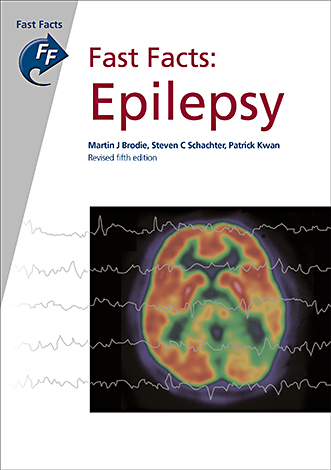That Fast Facts: Epilepsy is in its fifth edition provides a more eloquent recommendation than any personal comments of mine.
In accordance with the principles of the Fast Facts series,it aims to provide a brief overview and an accessible point of reference. Its 100 or so A5 pages are divided into chapters covering such topics as‘classification of seizures and syndromes’, ‘general principles of pharmacological manage- ment’, ‘individual antiepileptic drugs’ and ‘non- pharmacological management’. There are numerous useful tables (including ‘key points’ for each chapter), several illustrations, comprehensive glossary, indexing and references and contact details for organisations that aim to support patients with epilepsy and clinicians managing the condition (within the UK and internationally).
Niggle criticisms would include the slight distraction for the British reader of American spellings. The glossary defines ‘ictal’ as ‘relating to, or caused by a seizure’.This is perfectly true for the text to which theglossary applies;however,I would have preferred for it to be acknowledged that the term can be applied to any type of neurological attack.The chapter on individual drugs was the one I found most useful but it was not as explicit as I would have liked in stating how rarely some of the drugs are used as anticonvulsants (e.g.Vigabatrin, Felbamate and even Gabapentin). As you might expect,the chapter on diagnosis was the one that I found dullest,but it would have been inappropriate in a volume of this size to include the rare and fascinating.
Though brief, the chapters on ‘epilepsy in specific populations’, ‘quality of life issues’ and ‘future trends’enrich the volume. Though I am sure that all epilepsy facts that can be learned ‘fast’ should already be within the grasp of a Consultant Neurologist, I was pleased to read about the use of the morning after pill in those taking anticonvul- sants and about which herbal remedies might worsen seizures.
Finding fault with this book was more difficult than reading it.It is very easy to recommend to busy trainees about to start working in the epilepsy clinic. For the typical Neurologist it might have value as a quick reminder of the merits and demerits of less familiar modern antiepileptic drugs.

